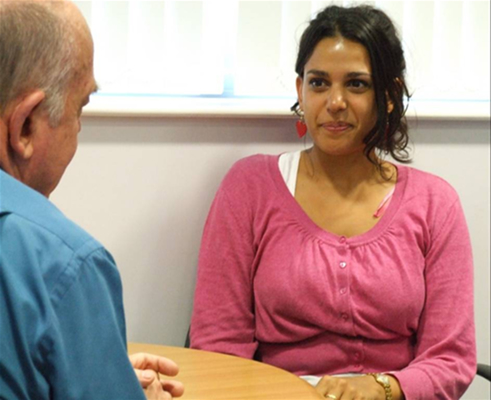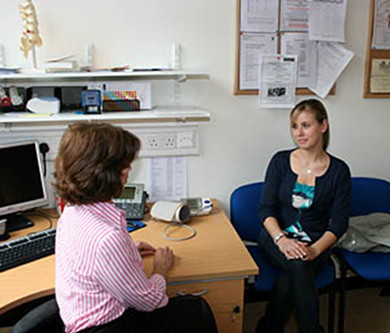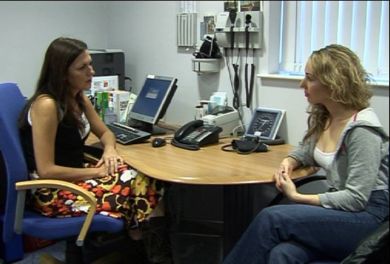Interpreting Family Histories and Identifying Patients Part 2 course for GPs


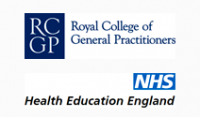
This is the second of three sessions that consider interpreting family histories and identifying patients with, or at risk of, a genetic condition.
Here we cover several important X-linked recessive conditions, including haemophilia A and Duchenne muscular dystrophy. The X-linked form of retinitis pigmentosa and the inheritance of Fragile X syndrome are also discussed.
This session was reviewed by Khyati Bakhai and last updated in January 2019.
Learning Objectives
By the end of this session you will be able to:
- Recognise X-linked recessive patterns of inheritance
- Interpret a family history / family tree
- Describe how genetic probability is estimated for X-linked recessive conditions
- Describe how some genetic conditions can show heterogeneity
This session will give you the opportunity to explore how to use family history and knowledge of inheritance patterns to identify patients with, or at risk of, X-linked recessive genetic conditions.

Before commencing this session you should complete sessions:
- Why Does Genetics Matter in Primary Care Practice? (400-0079)
- Taking and Drawing a Genetic Family History – Theory (400-0080)
- Taking and Drawing a Genetic Family History – Scenario (400-0081)
- Interpreting Family Histories and Identifying Patients Part 1 (400-0082)
Michelle has over fifteen years of experience within the field of genetics and genomics education, previously working at the UK’s National Genetics Education and Development Centre.
She supports the work of the Genomics Education Programme by providing educational and clinical expertise through resource production, leading curricular development for specialist workforce training and driving the wider NHS workforce transformation in genomics.
Previously Michelle has supported the genetics education of medical professionals throughout their training, developing a large range of genetics educational resources currently used by non-genetics specialty trainees.
She also has extensive experience in teaching genetics and genomics to undergraduate medical and nursing students as well as General Practice specialty trainees.
Michelle has a background in molecular biology and Genetic Counselling and a PhD in the field of genetics education. She currently sits on the Council of the British Society for Genetic Medicine.
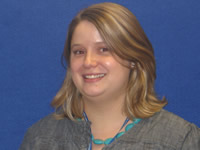
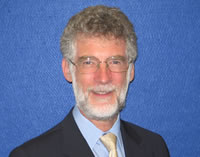
Peter Farndon has retired from his longstanding clinical, teaching, research, policy development and committee roles in genetics but is still actively involved in the British Society for Genetic Medicine.
Formerly Professor of Clinical Genetics and Consultant Clinical Geneticist in Birmingham, Peter was involved with the practical application of genetics for patients for nearly 25 years. He has had a long standing interest in genetic education, and in 2004 set up the NHS National Genetics Education and Development Centre, leading the team as the Centre’s director.
- Communication Impairments Part 4: Autistic Spectru...
- Posted By eIntegrity Healthcare e-Learning
- Posted Date: 2025-01-22
- Location:Online
- This session is the last of four that looks at different speech, language and communication impairme...
- Communication Impairments Part 3: Cleft Palate, He...
- Posted By eIntegrity Healthcare e-Learning
- Posted Date: 2025-01-22
- Location:Online
- This session is the third of four which describe different speech, language and communication impair...
- Communication Impairments Part 2: Specific Speech ...
- Posted By eIntegrity Healthcare e-Learning
- Posted Date: 2025-01-22
- Location:Online
- This session is about speech sound disorder (SSD). It describes the characteristics associated with ...
- Communication Impairments Part 1: Late-talking Tod...
- Posted By eIntegrity Healthcare e-Learning
- Posted Date: 2025-01-22
- Location:Online
- This session is the first of four which describe different speech, language and communication impair...
- Typical Development Part 2: First Words and Early ...
- Posted By eIntegrity Healthcare e-Learning
- Posted Date: 2025-01-22
- Location:Online
- This session gives an overview of the main aspects of how language typically develops in children. I...

